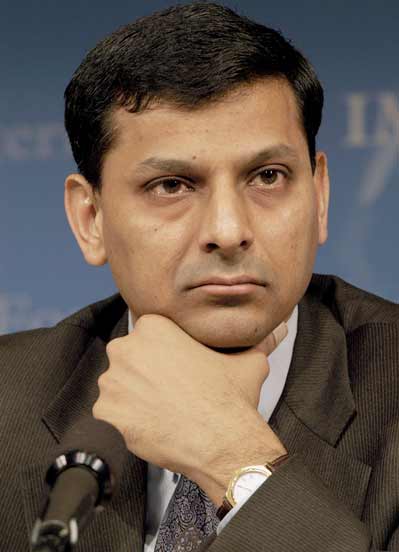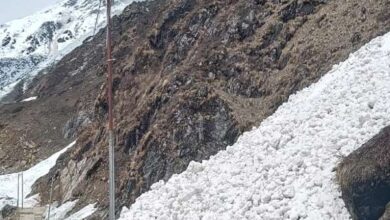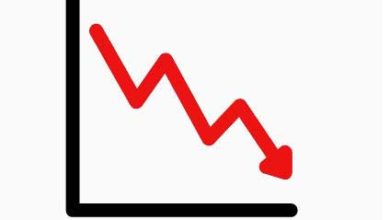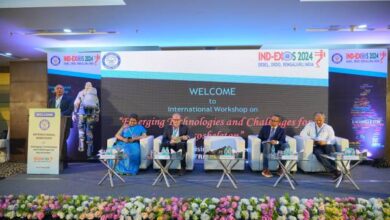
Former RBI governor Raghuram Rajan has once again targeted the Modi government’s policies. Rajan described the demonetization and GST as a big hindrance in India’s growth rate. Raising the question of the role of the PMO, Rajan said that the intervention of PMO in many decisions in India is also one of the biggest problems.
Former Reserve Bank Governor Raghuram Rajan described two major bottlenecks noteban and goods and service tax (GST) to the country’s economic growth which has affected last year’s growth momentum. He emphasized that the current growth rate of 7 per cent is not enough according to the needs of the country.
Two consecutive shocks hamper the growth rate of the country
According to news agency Bhasha, Rajan said at the University of California at Berkeley on Friday that before the demonetization and GST, the economic growth of India during the four years between 2012 and 2016 has been very fast. In the second Bhattacharya lecture held on the future of India, Rajan said that the two continuous shocks of the noteban and GST had a serious impact on the economic growth of the country. The country’s growth rate began to fall at a time when global economic growth was gaining momentum.
Current growth momentum
Rajan said that for 25 years, the economic growth rate of seven percent is a very strong growth, but in some ways it has become a new normal rate of growth for India, which used to be about three and a half percent. He said that the truth is that for the people who are joining the labor market, seven percent is not enough for them. “We need to create more jobs. We can not be satisfied at this level.”
Due to two shocks, the pace of development was low in 2017
Rajan, acknowledging India’s sensitivity towards global growth, said that India is now quite open economy. If the world grows then India also grows. He said that “In 2017 it was that despite the speed of world growth, the pace of India was still sluggish. This shows that these shocks (noteban and GSs) were really deep shocks. Due to these shocks, we had to choke.”
The rising cost of crude oil has also been a bit difficult
In relation to the challenge of rising crude oil prices, Rajan reiterated the country’s dependence on oil imports to meet energy needs. The former governor said that due to the rise in crude oil prices, the situation will be a little difficult before the domestic economy even if the country is recovering from the blockades and GST blockages. Regarding growing NPA, he said that it would be better to clean up such a situation. Rajan said that it is necessary that the bad things be dealt with so that the balance sheet is clean and the bank can return back on track. India has taken a long time to clear banks, partly because the system did not have the means to deal with bad credit.
10 lakh jobs required every month
Rajan said that the insolvency and lending incompetence code can not be capable alone in making bank accounts clean. He said that it is an element of such a big scheme of cleanliness. There is a need to adopt multi-level approach to tackle the NPA challenge in the country. He said that if we increase at a rate of less than seven per cent then there are definitely some disturbances. He said that India would have to grow on this basis for at least the next 10-15 years. He said that there is a need to create 10 lakh jobs per month for new people joining the labor force.
These three big problems in front of India
Rajan said that there are three problems in front of the country. The first problem is the rough infrastructure. He said that construction is the industry which runs the economy in the early stages. After that the growth of the basic structure is created. He said that the second short-term goal could be to improve the situation of the power sector. It should be ensured that the electricity generated annually comes to those who need it. The third issue is to clean up the NPA’s of banks.
Rajan targets PMO
Rajan said that part of the problem in India is that there is more centralized system of decision making. Rajan said that India can not work from center. India works when many people are lifting the burden. In today’s times, the central government is very centralized. He said, it is an example of that the consent of the Prime Minister’s Office is necessary for many decisions. In this regard, Rajan pointed to Sardar Patel’s statue ‘Statue of Unity’ and pointed out the need for the consent of the Prime Minister’s Office in big projects.








